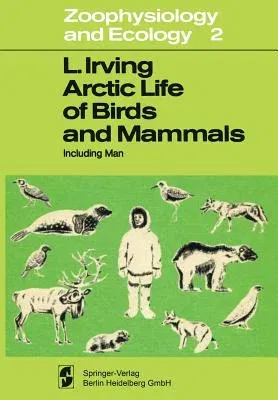L Irving
(Author)Arctic Life of Birds and Mammals: Including Man (Softcover Reprint of the Original 1st 1972)Paperback - Softcover Reprint of the Original 1st 1972, 15 April 2014

Qty
1
Turbo
Ships in 2 - 3 days
In Stock
Free Delivery
Cash on Delivery
15 Days
Free Returns
Secure Checkout
Part of Series
Zoophysiology
Print Length
194 pages
Language
English
Publisher
Springer
Date Published
15 Apr 2014
ISBN-10
3642856578
ISBN-13
9783642856570
Description
Product Details
Author:
Book Edition:
Softcover Reprint of the Original 1st 1972
Book Format:
Paperback
Country of Origin:
NL
Date Published:
15 April 2014
Dimensions:
24.41 x
16.99 x
1.14 cm
ISBN-10:
3642856578
ISBN-13:
9783642856570
Language:
English
Location:
Berlin, Heidelberg
Pages:
194
Publisher:
Series:
Weight:
344.73 gm

